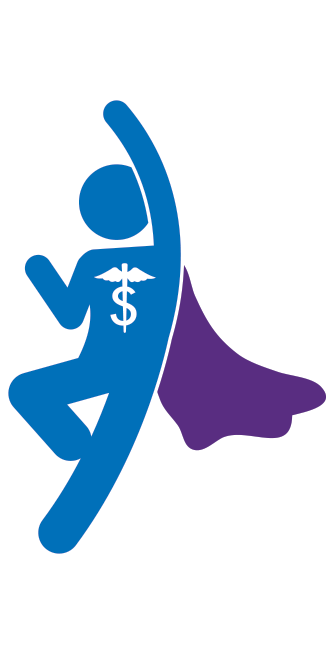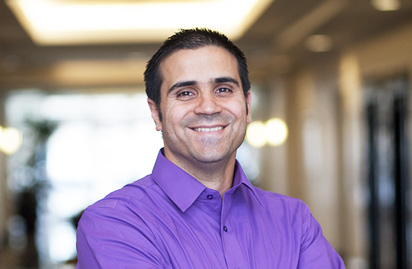HSA WHAT-IF QUIZ
Progress
1. You can contribute to an HSA while covered under a full-purpose health care FSA (whether yours or a spouse’s).
*A full-purpose healthcare FSA (whether yours or a spouse’s) is considered other medical coverage by the IRS, disqualifying you from contributing to an HSA while FSA coverage exists.
*A full-purpose healthcare FSA (whether yours or a spouse’s) is considered other medical coverage by the IRS, disqualifying you from contributing to an HSA while FSA coverage exists.

2. You can use your HSA dollars to cover your tax-dependent child’s medical expenses, even if they are covered under your spouse’s non-HDHP health plan.
*Your HSA funds can be used for the qualified medical expenses of you and your tax-dependents, even if they are not on your same insurance plan.
*Your HSA funds can be used for the qualified medical expenses of you and your tax-dependents, even if they are not on your same insurance plan.

3. In the event of your death, what happens to your HSA?
*If your spouse is the beneficiary of your HSA, the account becomes their HSA. If the beneficiary is not your spouse, your heir receives a distribution which becomes taxable to that individual. Failure to name a beneficiary means all assets in your HSA will be distributed to your estate and be taxed accordingly.
*If your spouse is the beneficiary of your HSA, the account becomes their HSA. If the beneficiary is not your spouse, your heir receives a distribution which becomes taxable to that individual. Failure to name a beneficiary means all assets in your HSA will be distributed to your estate and be taxed accordingly.

4. If your child up to age 26 is covered under your HSA-powered health plan, but you cannot claim them as a tax dependent, they can open their own HSA and contribute up to the family maximum as long as they meet all other HSA eligibility requirements.
* If your adult child up to age 26 is covered by your family HSA-powered health plan but is not your tax dependent, they can open their own HSA and contribute up to the family maximum, which they can then use for their spouse’s/tax dependents’ qualified medical expenses.
* If your adult child up to age 26 is covered by your family HSA-powered health plan but is not your tax dependent, they can open their own HSA and contribute up to the family maximum, which they can then use for their spouse’s/tax dependents’ qualified medical expenses.

5. If both you and your spouse have your own individual HSA-compatible plan and HSA, how much can each of you contribute to your HSAs?
* If you and your spouse have self-only HSA-compatible health coverage, you can each open your own HSA and contribute the yearly maximum for an individual.
* If you and your spouse have self-only HSA-compatible health coverage, you can each open your own HSA and contribute the yearly maximum for an individual.

6. If you are 52 years old, and your covered spouse is 56, you can contribute the additional $1,000 catch-up contribution into your HSA.
*If an HSA owner is not 55+, they cannot make a catch-up contribution. However, if covered under a family HSA-compatible plan, the spouse is able to open his or her own HSA and contribute the additional $1,000.
*If an HSA owner is not 55+, they cannot make a catch-up contribution. However, if covered under a family HSA-compatible plan, the spouse is able to open his or her own HSA and contribute the additional $1,000.

7. What happens to your HSA if you change jobs or retire?
*Your HSA belongs to you and remains yours to use, even if you change jobs or retire. If you retain HSA-compatible health coverage, you may continue contributing to your HSA.
*Your HSA belongs to you and remains yours to use, even if you change jobs or retire. If you retain HSA-compatible health coverage, you may continue contributing to your HSA.

8. What if you really need the money in your HSA for non-medical reasons?
*Non-medical HSA fund withdrawals are subject to income taxes and a 20% penalty.
*Non-medical HSA fund withdrawals are subject to income taxes and a 20% penalty.

9. What if you incur a large medical expense at the beginning of the year before your HSA is funded?
*If your medical bills exceed your current HSA balance, you are able to pay the expense out-of-pocket and reimburse yourself when funds are available, establish a payment plan with your provider, or even make a one-time contribution to cover the expense.
*If your medical bills exceed your current HSA balance, you are able to pay the expense out-of-pocket and reimburse yourself when funds are available, establish a payment plan with your provider, or even make a one-time contribution to cover the expense.

10. If your insurance coverage changes from family coverage to individual coverage mid-year, you can still contribute the full family maximum that year.
*If your coverage level changes mid-year, you are required to pro-rate your contributions for the portion of the year you received each level of coverage.
*If your coverage level changes mid-year, you are required to pro-rate your contributions for the portion of the year you received each level of coverage.



